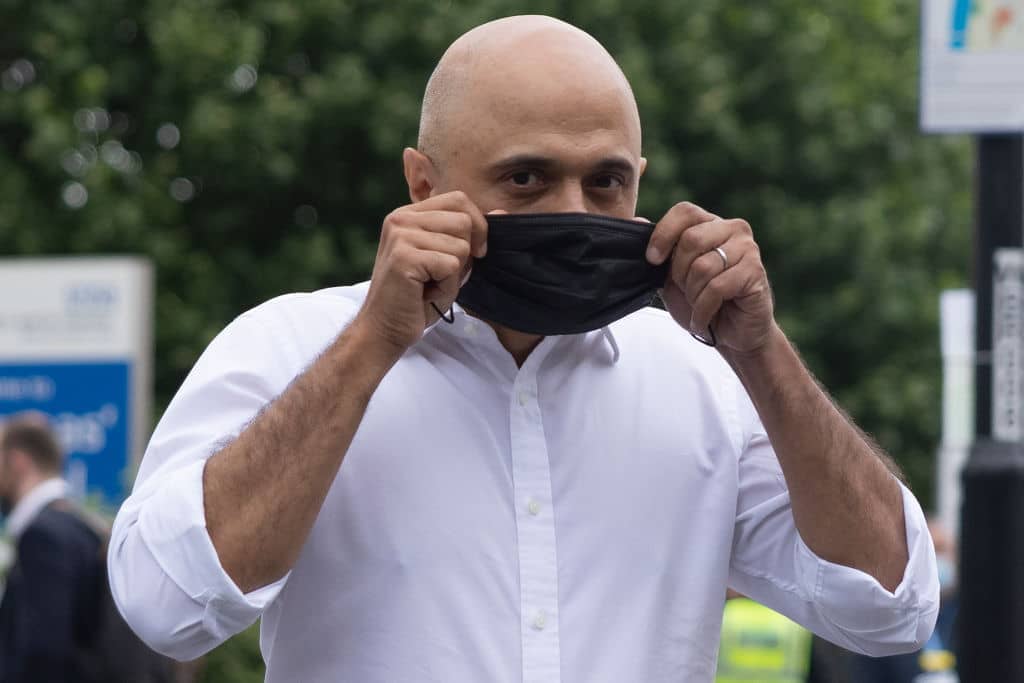Sajid Javid told Andrew Marr this morning that it would be possible to quarantine the contacts of those with Omicron, because the new Covid variant comes up negative for the ‘S’ gene in PCR tests (what he called ‘S gene drop out’), unlike Delta.
I had already been told about this helpful characteristic of some PCR tests, which would allow rapid detection of Omicron relative to Delta. But I was also told that just a portion of tests carried out by NHS Test and Trace had the ability to check for the S gene. I made inquiries and the UK Health Security Agency (UKHSA) gave me this statement:
’50 per cent of the Lighthouse laboratory network carrying out Pillar 2 community testing can assess samples for S gene target failure. We routinely monitor these outputs to look for spikes and variance patterns of testing’
So although this characteristic of some PCR tests would help the UKHSA chart Omicron’s growth, it would not achieve just-in-time quarantining of their contacts, because for half of Covid positives, gene sequencing would be required.
There is reason to fear that the UK lacks the infrastructure to detect contacts of those infected with Omicron fast enough to meaningfully slow the spread of a variant thought to be extremely transmissible
There is reason to fear that the UK lacks the infrastructure to detect contacts of those infected with Omicron fast enough to meaningfully slow the spread of a variant thought to be extremely transmissible. This will cause huge uncertainty for schools, universities and employers. They have been instructed — as Nadhim Zahawi has just done for schools and universities — that contacts of those suspected of having Omicron must isolate for ten days.
But employers and head teachers may have to wait days after an infection is detected to know whether a Covid sufferer has Delta — where isolation of contacts is not mandated — or Omicron. This potential delay feels like a recipe for chaos.
The UKHSA seems to be saying it has the testing capacity to chart the growth of Omicron in close to real time but not to identify all those with Omicron in less than the time it takes to do gene sequencing. As I said, this feels like a problem.
It also contradicts Sajid Javid’s optimism on Marr that standard PCR tests would help NHS Test and Trace speedily tell contacts of those infected with Omicron to isolate for ten days. But this is work in progress. The UKHSA says:
‘We are engaging all of the labs that provide private travel testing services to understand how many of them will be able to carry out the S gene target failure or equivalent assay focused on this variant’s genomic changes’
In other words, the government cannot yet be confident that the day two tests for travellers to the UK can distinguish Delta from Omicron. Which is plainly a problem.
And for labs used by NHS Test and Trace, ‘where equipment does not routinely allow for SGTF assay and community samples are being tested, we are rapidly developing and rolling out a genotyping assay to give an early indication of a probable [Omicron] variant case’.
There is no indication of how long it will take to upgrade the labs. In the first instance: ‘Close contacts of suspected cases, returning travellers and individuals in hospital are the priority’. But those ‘suspected cases’ will, in too many cases, not be identified by a PCR.
UKHSA is keen to stress that close contacts of suspected and confirmed Omicron cases will have samples priority tested for S-gene and will also have whole genome sequencing.
But contrary to Sajid Javid’s hopes, contacts of those infected with Omicron are bound to remain out and about in the community, potentially spreading the variant, far longer than is desirable







Comments